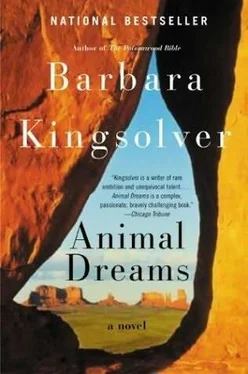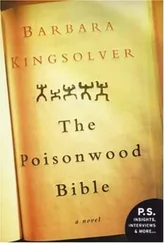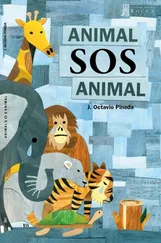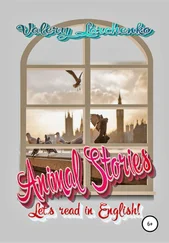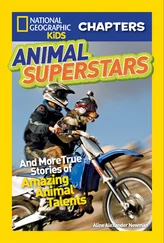“It’s fine. I used to live three blocks from a hospital ambulance entrance.” I didn’t add: with a man who reattached severed body parts for a living. I buttered my toast, holding my elbows in close and keeping an eye out for wayward jam knives. “So what kind of an investigation?”
“Oh, J.T.? He put sixteen cars on the ground outside El Paso. A derailment. Nobody got hurt. Oh shoot-John Tucker, honey, will you take the baby in the living room and watch him a minute? I can’t hear myself think.”
John Tucker took the baby from Emelina’s lap and carried him under one arm into the next room. The baby waggled his arms and legs like a swimmer in green stretch pajamas.
“Okay. Mason, sweetie, put your feet up here on my lap and I’ll tie your sneakers for you.” Emelina took a gulp of coffee. “So they all had to give a urine sample-J.T., the fireman, the brakeman, and some other person, I can’t remember who. Maybe another engineer. It all had to happen within a half hour of the accident; the company made a very big deal out of that. J.T. says, here they were out in some cow pasture with sixteen boxcars of frozen mixed vegetables scattered from hell to breakfast, and all the damn supervisor cared about was making sure which person pissed in what jar.”
The boys seemed unmoved by this off-color narrative. Having Emelina for a mother would neutralize the thrill of swear words.
“You know what, though,” she said, looking startled. “Damn. We were just joking about drug tests, the day before yesterday. Grammy made a poppyseed cake for Curty’s and Glen’s birthday and J.T. said…”
“Mo-om.”
“I’m sorry, Curtis, I forgot. He doesn’t want us to call him Curty. Their actual birthday was yesterday.”
I wanted to hear the rest of the derailment story, but this conversational flow was akin to freeway driving in L.A.; you don’t back up. “Well, happy birthday,” I said. “You boys get handsomer every time I see you, you know that?”
Curtis’s ears turned red.
“You can say ‘Thank you, ma’am,’ can’t you? Codi, they’ve all been asking me when you were going to get here till I thought they’d turn blue in the face, and now they’re acting like they were raised outside in a pen with the dogs.”
“That’s okay.” I felt a little intimidated myself. Even though I’d kept up with the family, it was inconceivable that in my absence from Grace Emelina could have produced this whole blue-eyed tribe of human beings.
“Mom, can I sleep put in the pen with Buster tonight?” Mason asked.
“No sir, you can’t. So when we were eating that cake, J.T. was saying how he’d better not have an accident on the railroad, because poppyseeds show up some way on the drug test.”
“That’s true, they would.” I reconsidered this. “He’d register positive for opiates. Poppyseeds are related to heroin. Is he going to be in trouble?”
“No, they know it wasn’t his fault. It was a sun-kink or some darn thing with the rails. The drug test is just to cover their ass. You know who else was on the train? The other engineer and the brakeman were both guys we went to school with, you might remember them. Roger Bristol and Loyd Peregrina. Loyd lived up at Whiteriver for a while but he’s moved back.”
I paid attention to my heart rate, to see if it would react in any way to this information. It didn’t seem to.
“Aunt Codi, say something in Greece,” Glen said.
“In Greek,” Emelina corrected, giving me an apologetic look. “I already told them you looked like a fashion model and had lived overseas. They think you know David Bowie.”
“Your mother exaggerates,” I said.
Glen didn’t seem too disappointed.
“So, Em, if I’m going to live here do I have to buy a pair of those silver loafers from the Hollywood Shop?”
She nodded seriously. “I’m pretty sure they won’t let you teach down at the high school without them.”
The school bus honked outside. “Okay, scoot,” Emelina said. “Mason, give me a kiss.”
The boys stampeded out the kitchen door, all legs, leaving the baby beached on Emelina’s lap. His eyes roamed anxiously around the quiet kitchen, taking in the emptiness.
Emelina and I took each other in. All morning I’d felt the strange disjuncture that comes from reconnecting with your past. There’s such a gulf between yourself and who you were then, but people speak to that other person and it answers; it’s like having a stranger as a house guest in your skin.
“So what’s new?” she asked.
“I don’t know, everything. I don’t think Grace has changed, but it feels different. There’s a lot I don’t remember.”
Emelina smiled. “I know what you mean. Senility strikes.” It was an odd thing to say; Doc Homer’s exact problem was that his mind had begun to roam in alarming new pastures.
“I guess so,” I said.
“Well, some things never change.” She leaned forward and said in a low voice, “Grammy still collects figurines of Elvis.”
I had to laugh. We’d known J.T.’s mother as children, of course-people here spent their childhoods tearing through the homes of their future in-laws-and I remembered her living room, which we used to call the Elvis Museum. She denied that the ones that were whiskey bottles were whiskey bottles. She’d always told us aftershave.
“So it’s all over with Carlo? Or just a vacation?”
“I don’t know. Over, I think. It’s taken me all this time to figure out he’s not going to tell me the secret to a meaningful life.” I was serious. I’d loved Carlo best when he provided me with guidance.
“I used to think the ideal husband would be Doctor Kildare.”
“Carlo’s an emergency-room surgeon. A man that decides which way to sew a thumb back on would have a good hold on life, wouldn’t you think? I just assumed it would rub off.”
“Gross,” Emelina remarked.
“I think it was his eyebrows. You know how he has those kind of arched, Italian eyebrows?”
“No, I never got to meet him. He was always at the hospital.”
That was true. He was shy. He could face new flesh wounds each day at work, but he avoided actual people. “Well, he had this look,” I said. “He always seemed right on the verge of saying something that would change your life. Even when he was asleep he looked like that.”
“But he never did?”
“Nope. It was just his eyebrows.”
I did miss him, or at least I missed being attached to someone in theory. Carlo had beautiful hands and a legendary sense of direction. Even when we were in Venice, where the tourist books advise you that “part of the Venice experience is wandering the narrow strade until you find yourself lost,” We wandered but never got lost. The man had a compass needle in his cerebral cortex. And for all that, he’d still in the long run declined to be the guiding star I needed. Just as my father did. My father was dying on me.
Emelina collected the plates and cups. She stood up and tied on an apron over her bathrobe, miraculously keeping the baby situated on her hip throughout the operation.
“Well, you’re no worse for the wear of five children in fourteen years,” I said, and she laughed, probably not believing it. Emelina was noticeably pretty. That combination particular to Grace, the pale blue eyes and black hair, never failed to be arresting, no matter how many versions of it you saw. The eyes were a genetic anomaly-in the first hours after birth, the really pure specimens of Grace’s gene pool were supposed to have whitish, marblelike irises. I’d seen pictures. Doc Homer had written it up for the American Journal of Genetics, years ago.
“And John Tucker’s a teenager,” I said. “Are we that old?”
Читать дальше
